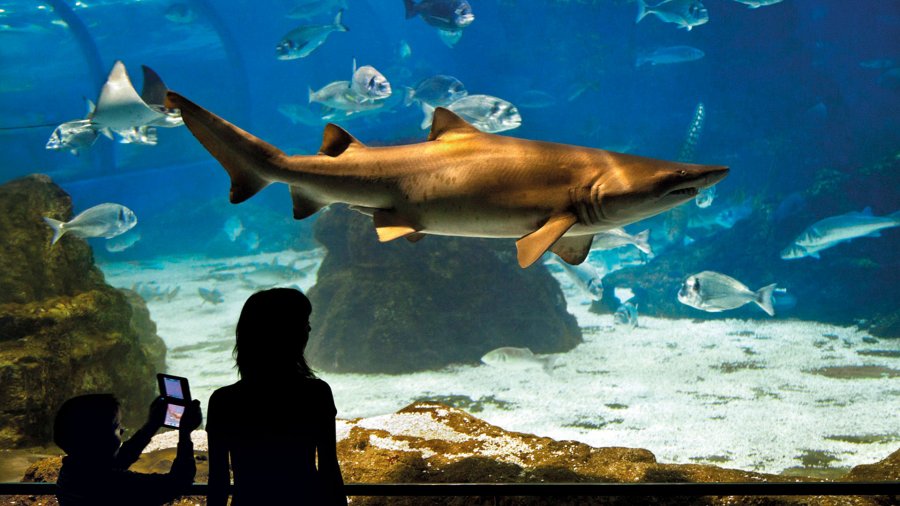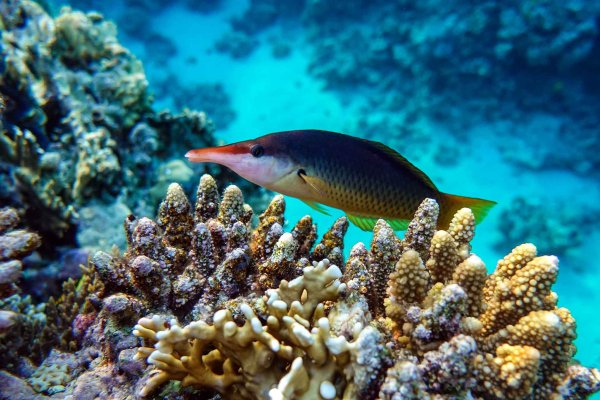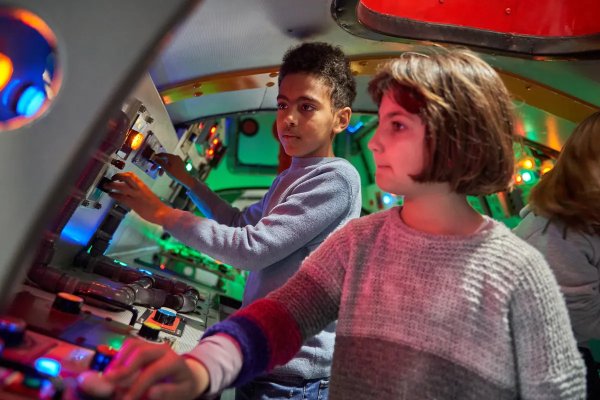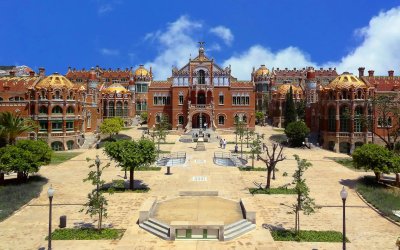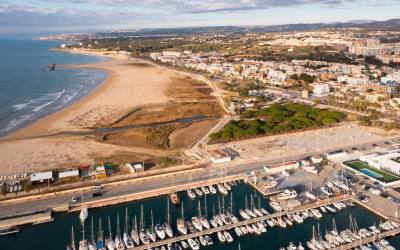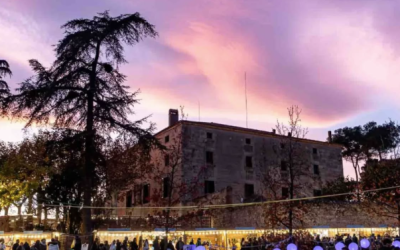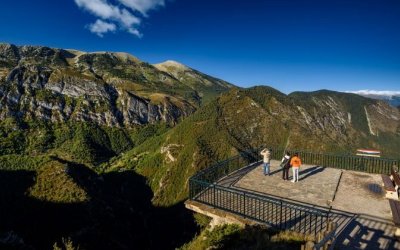L’Aquàrium de Barcelona, located in Port Vell and overlooking the sea that gives it its reason for being, has established itself as an area for awareness, learning, and discovery. Founded in 1995 and recently renovated to celebrate its 30th anniversary, the venue was created with a clear educational purpose and with the goal of offering the public the chance to experience the marine world. It is considered the world’s best aquarium dedicated to the Mediterranean, an exceptional place to understand marine biodiversity and commit yourself to its conservation while having a good time.
A fascinating journey through the Mediterranean... and beyond
With over 11,000 specimens from 450 different species, L’Aquàrium offers a unique immersion into the depths of the Mediterranean. The centre offers a tour that begins with sea surface ecosystems and ends in the deep sea, passing through habitats that faithfully represent different areas of altitude. Among these, the tank dedicated to the Medes Islands Marine Reserve stands out as one of the most biodiverse spots on the Catalan coast. The highlight of the visit is the Oceanarium, featuring an 80-metre transparent tunnel that lets you walk among sharks, rays, and other majestic species.
Although it focuses on the Mediterranean, L’Aquàrium also invites us to explore other corners of the planet. A gallery dedicated to tropical seas—such as Australia’s Great Barrier Reef, the Caribbean, and the Red Sea—showcases the biological richness of coral reefs teeming with life, colour, and also some hidden dangers, like venomous species.
This immersive experience, designed to be as realistic as possible, creates an intense visual and emotional journey, clearly conveying L’Aquàrium’s message: to know is to love, to love is to protect, and to protect is to conserve.
Experiences that educate and transform
True to this principle, the “Planeta Aqua” and “Explora!” permanent exhibitions are interactive learning spaces, especially designed for families. Here, through games, augmented reality, and sensory activities, visitors can discover the importance of the aquatic environment, meet Humboldt penguins and unique creatures like the axolotl or jellyfish, and even travel back in time to the first expeditions by piloting a submarine.
One of the latest additions to L’Aquàrium de Barcelona is the immersive experience, “Journey to the Depths,” which combines virtual reality and advanced technology to transport visitors to the deepest part of the ocean: the Mariana Trench, nearly 11,000 metres below the surface. Here, we encounter amazing animals and the real dangers lurking in an environment that seems from another planet—a true adventure that calls us to action. We can step into the shoes of turtles trapped in plastic and come across ghost nets to raise awareness of the threats facing marine life.
For the more adventurous, the centre also organizes unique activities such as swimming with sharks, or even night-time games and sleeping at L’Aquàrium surrounded by these fascinating creatures. You can also become an aquarist for a day and experience first-hand what it’s like to care for the animals living there.
Be part of the change
At L’Aquàrium de Barcelona, they are convinced that the best way to protect the sea and its inhabitants is by making them known and bringing them closer to people, to show both their beauty and fragility. This philosophy permeates all the work they do as a Mediterranean Marine Conservation Centre. With a dedicated scientific team, L’Aquàrium works to ensure animal welfare, promote the natural reproduction of species, and drive research on marine ecosystems.
The centre’s environmental ethics and various sustainable practices have been recognized with the Biosphere seal through the Barcelona Destination Tourism Sustainability Commitment, making it one of the first 50 companies to receive it; now there are over 1,000.
In this respect, L’Aquàrium de Barcelona not only invites you to observe, but also to reflect. When you leave, you’ll have met extraordinary creatures, but you’ll also have understood that the future of the sea depends on how we act today. And that, without a doubt, makes the visit truly worthwhile.
